Gameism is a modern, practical philosophy derived from a tiny computation.
Computer science is modernizing every facet of society — finance, transport, healthcare. Gameism applies the same first-principles thinking to the world's oldest problem: what is the meaning of life, and how should I live it?
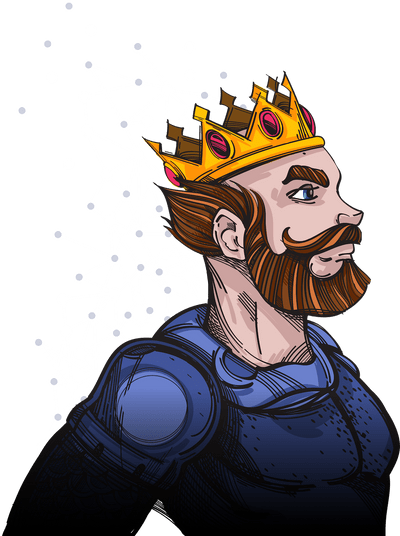
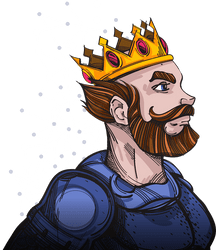
Unlike religion, Gameism requires no blind faith or external source of Truth. Anyone can derive the philosophy from scratch using three lines of epistemic code. Here's how:
(NOTE: if you don't immediately "get" this part, or it's too geeky for you — don't worry. Just suspend your skepticism/confusion and continue reading. I'll explain the logic in layman's terms after you've read this synopsis).
First, we divide the universe into two components: the observer 👁️ (you) and the observed 🏠 (the "3D world" outside of you).
Then we ask three questions. Each question is a "boolean function" with two possible outcomes: true or false.
the observer 👁️ and the observed 🏠 the same thing?Most people assume the answer is
false. But when you're forced to answer using unbiased logic (instead of biased intuition), the function returns true by default. This means reality is a "non-dual" illusion — like a dream, or a simulation. (Read explanation)observer 👁️, are you a conscious system?You have to be conscious to respond, so the answer is
true. From here, we can deduce that the universe is a conscious system observing itself. (Read explanation)The FEP is a recursive algorithm developed by one of the top neuroscientists in the world. It's published in peer-reviewed, scientific journals — so you're welcome to do your own research and come to your own conclusions. Gameism simply connects the dots and demonstrates how Friston's work goes way beyond neuroscience. (Read explanation)
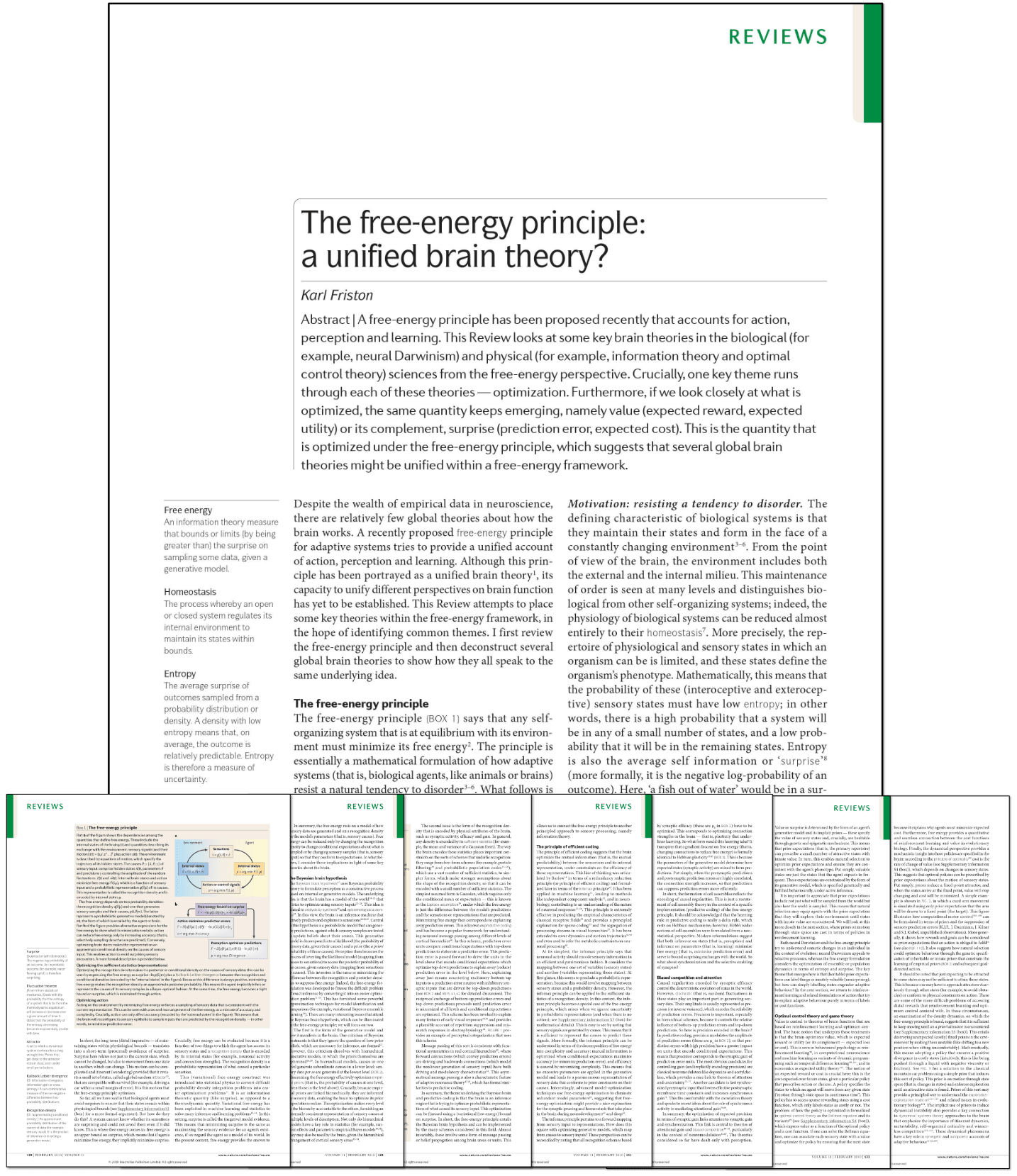
An article by Karl Friston in Nature Reviews Neuroscience, published February 2010.
These three outputs (true,true,true) generate a precise, mathematical explanation for the Law of Attraction, which mystics have been whispering about for millennia. The system looks like this...
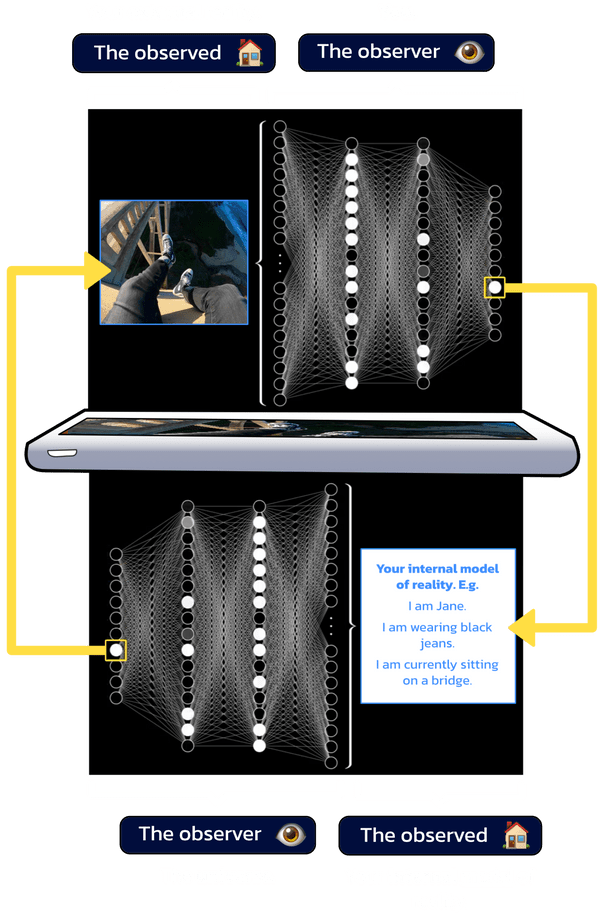
You observe your external reality, process that information, and form an internal model of reality (a belief system). The universe observes your internal model of reality (belief system), processes that information, and generates an external reality that minimizes "free energy" (a mathematical measure of surprise) for every observer in the system, both now and in the future.
According to this model, the universe is an intelligent, self-organizing information structure — a choose-your-own-adventure sandbox game. You decide Who You Are, and the game generates everything you need to experience that concept of yourself.
It works like DALL·E 2 — an AI system developed by one of the leading artificial intelligence research labs in the world, OpenAI.
DALL·E's interface looks like this...
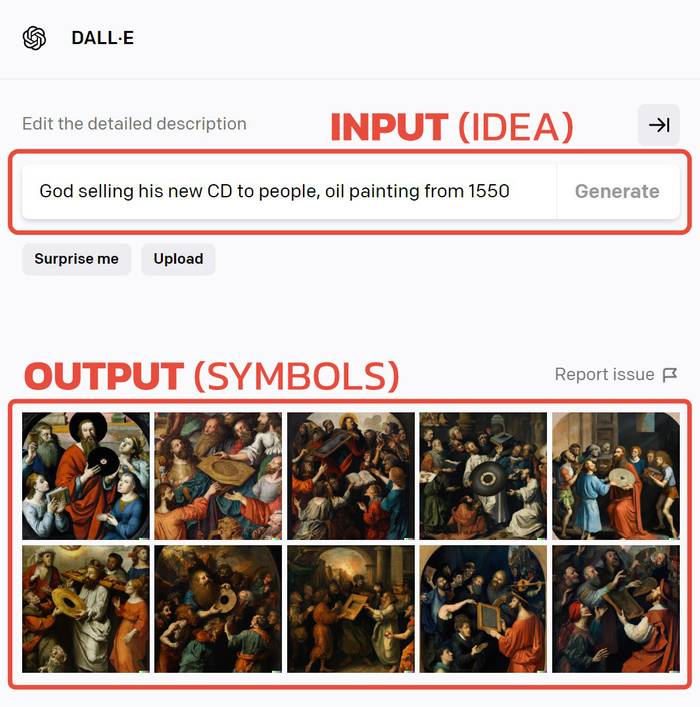
(Source)
When you feed DALL·E a conceptual idea (e.g. a raccoon astronaut with the cosmos reflecting on the glass of his helmet dreaming of the stars), DALL·E observes that idea and transforms it into an emergent pattern of information — a visual symbol — to render on the screen.
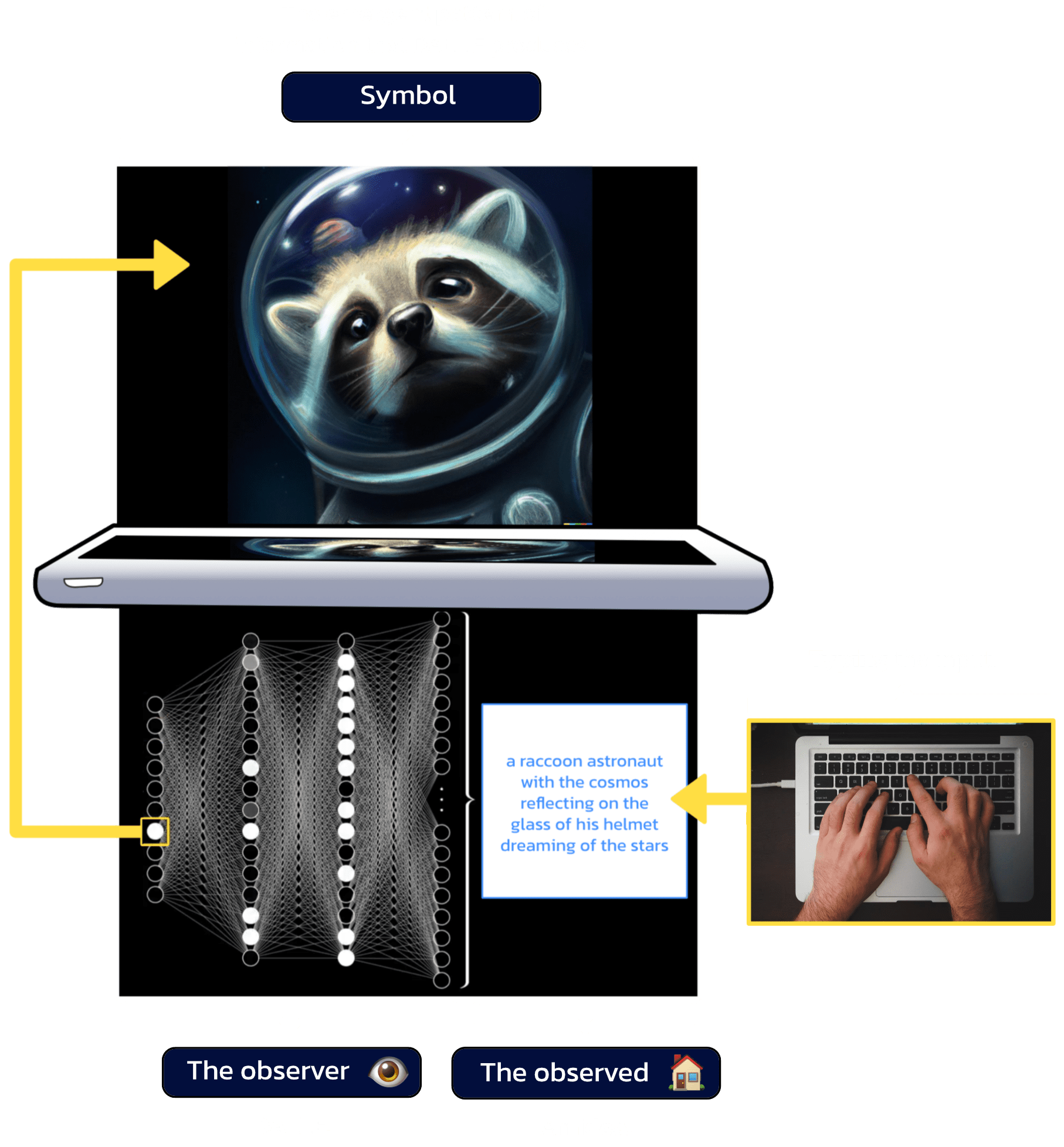
You give DALL·E an idea. DALL·E observes the idea and transforms it into a visual symbol to render on the screen.
Here are some more examples...

Idea: A steampunk Furby, 3D render, studio lighting. (Source)

Idea: Floating modern house in a broccoli tree up in the clouds. (Source)
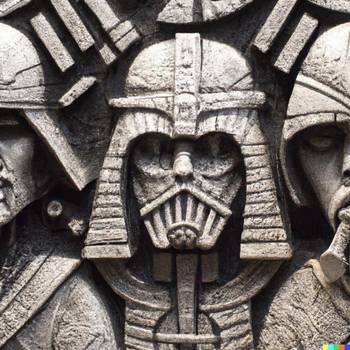
Idea: Aztec carving of darth vader flanked by stormtroopers. (Source)
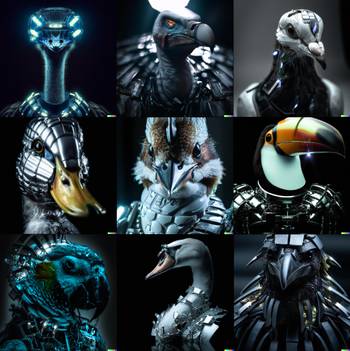
Idea: Birds in cybernetic battle armour (note: DALL·E received 9 prompts with 9 separate bird names, and this is a collage of the results) (Source)

Idea: A still life scene of a table with a banana on a skateboard doing an ollie over a porcelain plate. (Source)
Now, imagine you gave DALL·E two ideas: I am unworthy of good things and money is a good thing. DALL·E would observe those abstract ideas and transform them into a symbol: your hands opening an empty wallet/bank account.
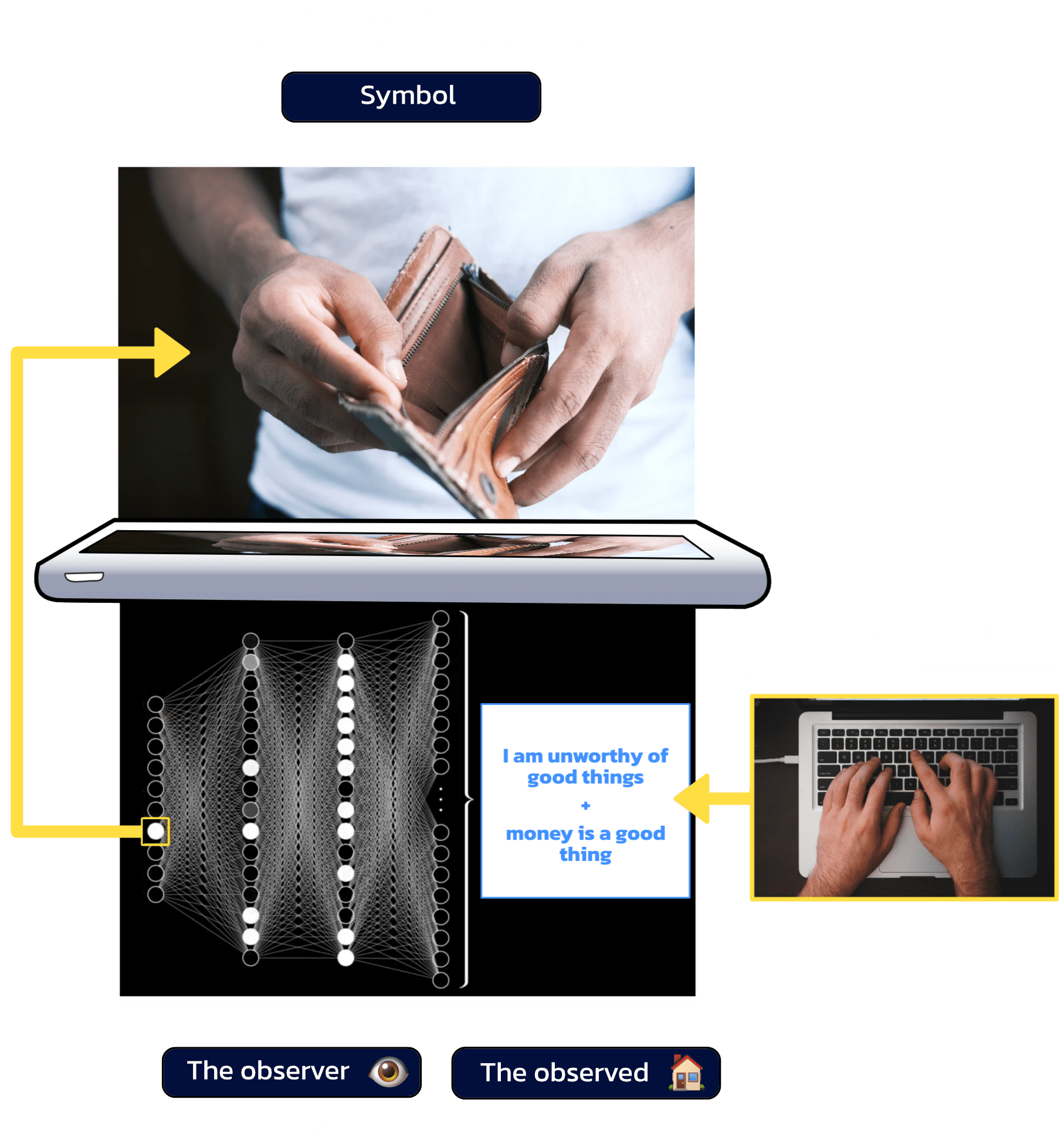
If money is a good thing, and you are unworthy of good things, then you are unworthy of money. Opening an empty wallet/bank account is a symbol of that conceptual idea.
Now let's remove the "typing the input" component and make the AI system observe itself...
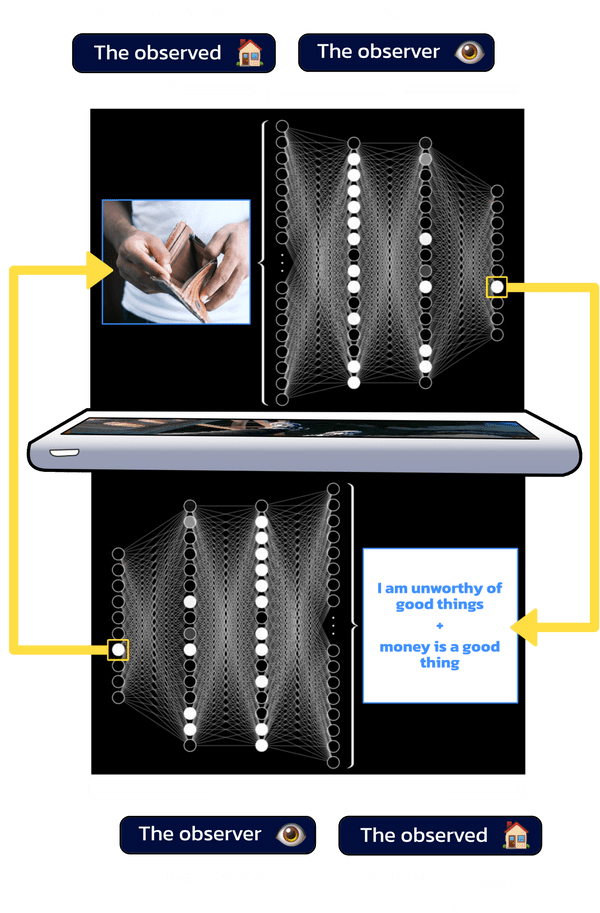
We just created a mirror. This is how the game works...
The game is self-organizing to produce quests, situations, characters, and environments that give you a physical experience of whoever you believe yourself to be — and what you believe yourself to be capable of.
The following scene from the 1999 sci-fi film, The Matrix, sums up the implications of this...
"Do not try to bend the spoon. That's impossible. Instead, only try to realize the truth: there is no spoon. Then you will see that it is not the spoon that bends, it is only yourself."
Hence, Gameism is rational spirituality. It's a modern, practical, logically-stable philosophy derived from a tiny algorithm — the apparent source code of the game.
Once you understand this algorithm — and how to manipulate it — the only limits to your potential are the ones you place on yourself...
The Core Concepts

Life is an infinitely flexible sandbox game, and you are a player.

Your mission is to create, and experience, Who You Really Are. The three tools of creation are thought / word / action.

The game is constantly generating quests / characters / objects / circumstances to be used in the construction of Self. Who You Are is defined by how you think, speak, and act relative to everything you encounter.

There is no right or wrong way to play the game. There is only choice and consequence. All choices have mathematical consequences that will eventually manifest in the game. What seems like karma, luck, or coincidence to you is nothing more than a computation playing out.

The computation is minimizing "free energy" — a mathematical measure of surprise. Therefore, you can master (and "hack") the game by learning to manipulate, rearrange, redistribute, and utterly control free energy.
This is a nuanced skill, but generally speaking it involves using thought / word / action to craft a version of yourself that would not experience surprise if you were to observe your desire manifesting in the game. For example, if you dream of becoming a millionaire, ask yourself this question: "Would I experience shock, surprise, disbelief, or a foreign unfamiliar feeling (e.g. worthiness) if I checked my bank account right now and my balance was over $1,000,000?" If the answer is "yes," then you've got work to do.

Hence, mastering the game involves mastering yourself. Masters understand that it doesn’t matter what others are being, doing, having, saying, wanting, demanding. It doesn't matter what the game is manifesting around you. It only matters what you are being in relationship to that. Always, always, always remain focused on Self.

The game will constantly call you to create, express, and experience higher and higher aspects of yourself, grander and grander visions of yourself, ever more evolved versions of yourself. Thus, mastery is a process — an internal state of being — not a final destination. You are on a journey to nowhere.

Send your friends down the rabbit hole...
Enjoying Gameism so far?
Join my mailing list of gameists...
And follow me on twitter...


The
Source Code
You are reading these words right now, so you know with 100% certainty that your consciousness exists. Let's call you the observer 👁️.
You can also observe a 3D world outside of yourself. Let's call this 3D world the observed 🏠.
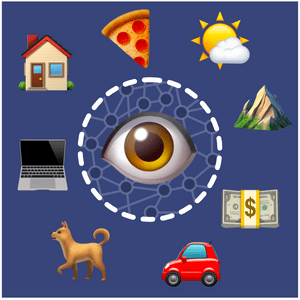
The observed 🏠 is everything outside of the observer 👁️.
I'll now parse this information through three boolean functions. A "boolean function" is a question with two possible outcomes: true or false.
the observer 👁️ and the observed 🏠 the same thing?This is the most fundamental question about the universe, yet scientists never bothered to ask it. Because according to the scientific method, the answer is true by default. Basic logic confirms what mystics have been saying for millennia: the universe is a "non-dual" illusion — like a computer game, or a simulation.
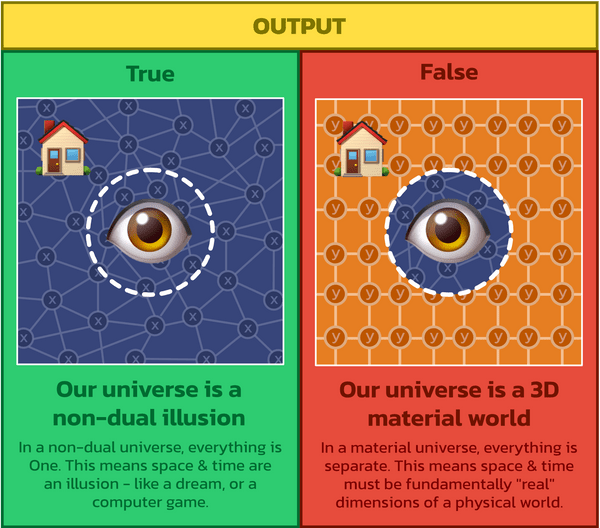
You know with 100% certainty that your consciousness (x) exists. The world outside of you could also be x, or it could be a separate, redundant entity (y) — an entity that you have no evidence for. Hence, if you believe in y, you do it on blind faith. And blind faith is not science — it's religion.
Are the observer 👁️ and the observed 🏠 the same thing?
If the answer is true, then we live in a non-dual universe where everything outside of you is you. This means the dimensions of space and time must be emerging from a lower dimension where everything is One.
Gameism is an indie project by Nikki Durkin




